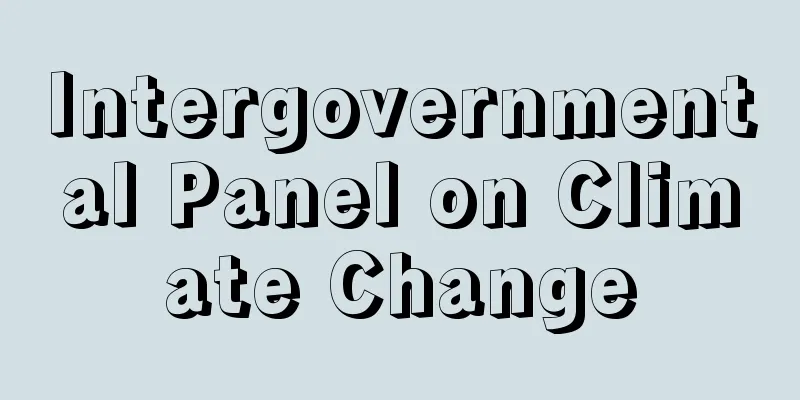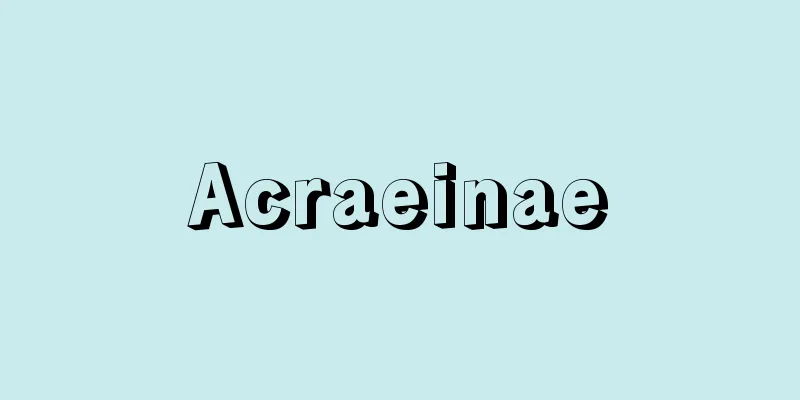Intergovernmental Panel on Climate Change

|
IPCC is a United Nations research organization that provides scientific knowledge on the impacts of and countermeasures against global warming. It was jointly established in 1988 by the World Meteorological Organization (WMO) and the United Nations Environment Programme (UNEP) in response to the worsening of climate change, such as major floods and droughts, which are believed to be caused by global warming. As of the end of 2020, 195 countries and regions around the world are participating. The permanent secretariat is located in Geneva, Switzerland. Its purpose is to consolidate the latest scientific, technical, and socio-economic information on the crisis of human-induced climate change and provide an assessment of the results. Based on recommendations from governments and other sources, scientists and government officials from around the world participate without compensation, review and analyze already published papers, and report the latest knowledge. It does not conduct new research on its own, nor does it engage in political negotiations. Its activities are divided into three Working Groups (WGs): (1) natural science knowledge of global warming, (2) impacts and damage countermeasures, and (3) measures to reduce greenhouse gas emissions. The report includes three subcommittee reports and an assessment report that integrates these reports, and all governments must approve them before they can be made public. In particular, the "Summary for Policymakers," which summarizes the important points so that non-experts can understand them, is checked sentence by sentence and must be unanimously approved by the IPCC General Assembly. To date, the IPCC has published five assessment reports every five or six years, in 1990, 1995, 2001, 2007, and 2013-2014, and is scheduled to compile its sixth report in 2022. The first assessment report predicted that temperatures would rise by 3°C by the end of the 21st century, and called for agreement among developed countries to curb greenhouse gas emissions. The second assessment report proposed that many countries, including developing countries, need to take measures, the third assessment carried out a detailed regional assessment, and the fourth assessment pointed out that the average temperature at the end of the 21st century will rise by up to 6.4°C compared to the end of the 20th century. The fifth report concluded that "there is a 95% or higher probability that the main cause of global warming is human-made," and warned that if effective measures are not taken, the average global temperature at the end of the 21st century will rise by 2.6°C to 4.8°C, and sea levels will rise by up to 82 centimeters. In 2018, the UN also compiled a special report called the "1.5°C Report," which pointed out that if the temperature rise were limited to 1.5°C from 2°C, sea level rise by 2100 would be reduced by about 10 centimeters, and up to 10 million fewer people would be at risk. To limit the temperature rise to 1.5°C, the report proposed that global carbon dioxide ( CO2 ) emissions must be reduced by 45% by 2030 compared to 2010 levels, and that they must be reduced to virtually zero by around 2050. The report has been used as a basis for international negotiations on global warming countermeasures, and has had a major impact on international agreements related to the global environment, with the first report leading to the adoption of the United Nations Framework Convention on Climate Change (UNFCCC) in 1992 and the second report leading to the adoption of the Kyoto Protocol in 1997. The IPCC was awarded the Nobel Peace Prize in 2007 together with former US Vice President Gore. The award was given for "spreading knowledge about man-made climate change and working to combat it," and for "creating a common understanding of the relationship between human activities and global warming." [Takeshi Yano March 22, 2021] [References] | | |United Nations | | | | |Source: Shogakukan Encyclopedia Nipponica About Encyclopedia Nipponica Information | Legend |
|
地球温暖化の影響や対策に関する科学的知見を提供する国連の研究組織。略称IPCC。大洪水や大干魃(かんばつ)など温暖化に起因するとされる気候変動が深刻化したため、1988年に世界気象機関(WMO)と国連環境計画(UNEP)が共同で設立した。2020年末時点で世界の195か国・地域が参加している。常設事務局はスイスのジュネーブにある。人為的に誘発した気候変動の危機に関する科学的、技術的、社会経済的な最新情報を集約し、その結果の評価を提供することを目的とする。各国政府などの推薦に基づき、世界の科学者や政府関係者が無報酬で参加し、すでに公表された論文などを検討・分析して最新の知見を報告する。独自に新たな研究をすることはなく、政治交渉も行わない。活動は(1)温暖化の自然科学的知見、(2)影響や被害対策、(3)温室効果ガス排出削減策の3作業部会Working Group(WG)に分かれて行われる。報告書には三つの部会報告とこれらを統合した評価報告書があり、公表にはすべての政府の受諾が必要である。とくに、専門家以外にもわかるように重要ポイントをまとめた「政策決定者向け要約」は1文ずつチェックされ、IPCC総会で全会一致での承認が必要となる。 これまでIPCCは1990年、1995年、2001年、2007年、2013~2014年と5~6年ごとに、計5回の評価報告書を公表し、2022年に第6次報告をまとめる予定である。第1次評価報告書は21世紀末までに気温が3℃上昇すると予測し、先進国の温室効果ガス排出抑制の合意を求めた。第2次では、開発途上国を含めた多くの国が対策に取り組む必要性を提案し、第3次では地域別評価を詳しく行い、第4次では21世紀末には平均気温が20世紀末より最大で6.4℃上昇すると指摘した。第5次報告では「温暖化の主因は人為的である可能性が95%以上」と断定し、有効な対策をとらない場合、21世紀末の世界の平均気温は2.6℃~4.8℃上昇し、海面は最大82センチメートル上昇すると警告した。また2018年には「1.5℃報告書」とよばれる特別報告書をまとめ、気温上昇幅を2℃から1.5℃に抑えた場合、2100年までの海面上昇が約10センチメートル少なく、リスクにさらされる人は最大1000万人減ると指摘。1.5℃に抑えるには、世界の二酸化炭素(CO2)排出量を2030年までに2010年比で45%減らし、2050年前後には実質ゼロを達成する必要があると提言した。報告書を基礎資料として温暖化対策の国際交渉が行われ、これまで第1次報告書が1992年の気候変動枠組み条約(UNFCCC)、第2次報告書が1997年の京都議定書の採択にそれぞれつながるなど、地球環境にかかわる国際的合意に大きな影響を与えている。 IPCCは2007年にノーベル平和賞を元アメリカ副大統領のゴアとともに受賞した。授賞理由は「人為的気候変動についての知識を広め、その対策に尽力」、さらに「人間活動と地球温暖化の関連についての共通認識をつくった」としている。 [矢野 武 2021年3月22日] [参照項目] | | | | | | | |出典 小学館 日本大百科全書(ニッポニカ)日本大百科全書(ニッポニカ)について 情報 | 凡例 |
<<: United Nations Framework Convention on Climate Change
>>: Climate change - climatic variation
Recommend
Hans Fallada
German novelist. His real name was Rudolf Ditzen....
Stage arts - Endanjutsu
〘Noun〙 A method of Japanese mathematics, invented ...
Mozi
A person who lived from the late 5th century BC t...
Khafgi Oil Field
An offshore oil field in the Persian Gulf, locate...
Qinā (English spelling)
A town located in central Egypt, about 500 km sout...
Living Stone
…It is distributed in South Africa and Namibia. I...
Patagonia (English spelling)
The area south of the Colorado River, which flows ...
Otakasawa Village
...A city at the southern tip of Miyagi Prefectur...
Horned turban (Sazae)
A snail shell of the Turbinidae family (illustrati...
Kinugawa [Hot Springs] - Kinugawa
A simple hot spring wells up in the valley of the ...
Pressure Shield - Akkishield
...A cylindrical machine called a shield (origina...
Cubs - Kabusu
…It is said that the oldest introduced citrus fru...
Nampo
A port city (directly controlled municipality) in...
Juan Fernández Islands
Three small islands in the Pacific Ocean, 650 km w...
Capture ratio - Kyapuchahi
…Standard level refers to the input and output le...









